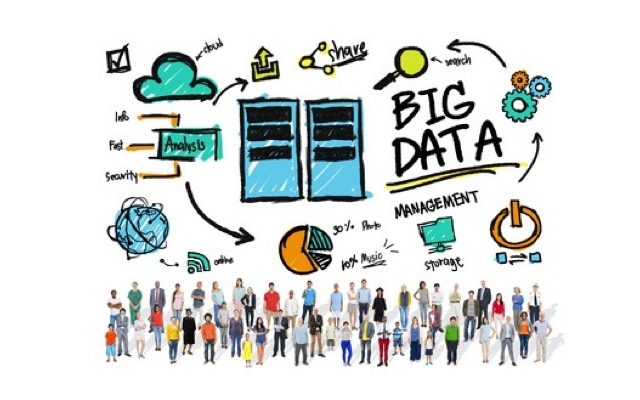A big data engineer is a skilled individual who is responsible for designing, building, and maintaining big data solutions. They are responsible for working with data that is too large or too complex for traditional data processing systems. They must have a thorough understanding of big data concepts and be able to use various big data tools and technologies.
A big data engineer typically has a bachelor’s degree in computer science or a related field. They may also have experience working with big data technologies such as Hadoop, Apache Hive, and Spark. They must have excellent problem-solving skills and be able to communicate with developers and other.

What is the role of big data engineer
- Role and Responsibilities of big data engineer
A big data engineer is responsible for helping to design and manage big data systems. They work with data scientists and other engineers to collect, process, and store large amounts of data in a way that can be used to improve business operations. They may also work on developing new ways to use big data technology.

what are big data engineer skills and responsibilities
A big data engineer is responsible for building and managing big data solutions. They need to have strong programming skills and be able to work with different data storage and retrieval systems. They also need to be able to understand data analytics and be able to develop effective big data solutions.

As the skills and responsibilities of a big data engineer will vary depending on the specific project or organization they work for. However, some common skills and responsibilities of big data engineers include:
Developing and implementing large-scale data processing and analysis pipelines
Managing and monitoring big data infrastructure
Working with big data technologies, including Hadoop, Spark, and Cassandra
Creating and maintaining big data applications
Big data engineers typically have a bachelor’s degree in computer science or a related field, as well as experience in big data processing and analysis.
How does one become a data engineer
Becoming a big data engineer is not as difficult as one might think. There are a few things that you will need to do in order to gain the skills and experience required to become a big data engineer. First, you will need to have a degree in computer science or a related field. Next, you will need to have experience working with large data sets. Finally, you will need to have experience working with various big data technologies. Once you have all of these qualifications, you will need to learn big data engineering techniques. There are many online resources that can help you learn big data engineering techniques.

You will be unable to access your videos, messages, or any other information after deleting your TikTok account. However, TikTok allows you to download your data before deleting your account, so it’s a good idea to save your videos if you don’t want to lose them.
In demand skills of big data engineer
Big data engineers are in high demand because they are responsible for managing and processing large amounts of data. They need to have skills in data modeling, data processing, and analytics. They also need to be able to work with different software platforms like
- Programming language like (C, C++, Java, Python)
- Structured Query Language and Database
- ETL (Extract, Transform, and Load) and Data warehousing
- IBM DataStage, Pentaho, and Informatica
- OS (Operating System) knowledge of Linux, Unix, Windows and Solaris
- Hadoop
- Spark
- MapReduce
- Datamining and Modeling
Roadmap to becoming a big data engineer

There is no right or wrong roadmap to becoming a big data engineer. However, there are a few key steps that aspiring big data engineers should take to maximize their chances of success.
First, gain experience working with big data technologies on a real-world project. This can be done by working as a data engineer on a startup or in a larger company, or by taking courses or workshops offered by big data providers such as SAS or Hortonworks.
Second, learn how to code in big data languages such as Hadoop and Spark. Coding in these languages can help you solve complex big data problems, and can also give you a leg up on your competition.
Third, become familiar with big data storage and management technologies, such as HDFS and Spark SQL. These technologies allow you to store and manage big data datasets efficiently and effectively.
Finally, keep up to date on big data trends and developments. This will help you stay ahead of the curve and ensure that you
Degree
All of the abovementioned technical abilities must be mastered in order to become a big data engineer, which requires extensive study. Many people who go on to become big data engineers have bachelor’s and master’s degrees in a discipline that is closely related, such as business data analytics, statistics, or computer science.
Coding, statistics, and data mastery are requirements for big data engineers. A bachelor’s degree is often required for big data engineer employment in businesses.
Experience
An important qualification for becoming a big data engineer is experience. You can acquire experience through freelancing, internships, independent practise, or employment in related fields. Your chances of landing a job as a big data engineer increase with experience.

Certifications
There are a few certifications that are typically needed in order to become a big data engineer. These include certification in big data infrastructure, big data processing, big data architecture, and big data management. Additionally, many employers may require experience working with big data technologies.
To land a job as a big data engineer, professional certifications might also be quite helpful. For those aspiring big data engineers, each of the following certifications might be useful:
- CCP (Cloudera Certified Professional) Data Engineer
- CBDP(Certified Big Data Professional)
- Google Cloud Certified Professional Data Engineer
Next Steps
A job as a big data engineer can be the ideal fit for you if you are passionate about computer science, data, numbers, and programming. You will have to put in a lot of effort to acquire all the abilities and qualifications that companies are going to want in order to enter this field.
Big Data Engineer salary
Big data engineers are highly sought for, as was previously noted, and their salary reflects this. Big data engineers make, on average, $131,000 year, however salaries might differ from state to state.

FAQs:
What Are The Main Big Data Architectures?
There are many big data architectures, but some common ones are columnar, hash-based, and graph-based. Columnar architectures store data in columns, and hash-based architectures store data in hashes. Graph-based architectures use graphs to store data.
What Are The Main Big Data Tools
The big data tools are used to process and store data. Some of the main big data tools are Hadoop, Apache Spark, and MongoDB.
What Are The Challlanges Being Faced By Big Data Engineer?
One of the biggest challenges in big data is managing the sheer volume and variety of data. With so much data coming in from a variety of sources, it can be difficult to understand and use it effectively. Another challenge is working with data that is scattered across different formats and platforms. Finally, big data requires a substantial amount of computing power to process and use.
What Are The Main Big Data Skills?
There are many big data skills, but some of the most important are:
- Understanding data dimensions and data types
- Understanding how to capture, store, and analyze data
- Knowing how to use big data tools and technologies
- Understanding big data business issues
- Having a strong data governance and data management skills
- Having a deep understanding of big data analytics platforms
- Being able to communicate effectively with stakeholders in big data projects
Summary
A big data engineer is responsible for designing, developing, and running big data systems. They must have a strong understanding of big data concepts and be able to effectively manage big data systems. They must also be able to effectively communicate with other members of a big data team to ensure data is properly processed and analyzed.
Conclusion
There is no single right or wrong answer when it comes to concluding a big data engineer. However, some common themes that might emerge include:
-The need for a big data engineer is growing increasingly important
-The big data engineer role is evolving, and will continue to do so
-The big data engineer should be well-versed in a variety of big data technologies
-The big data engineer should have a strong understanding of data management and analytics


